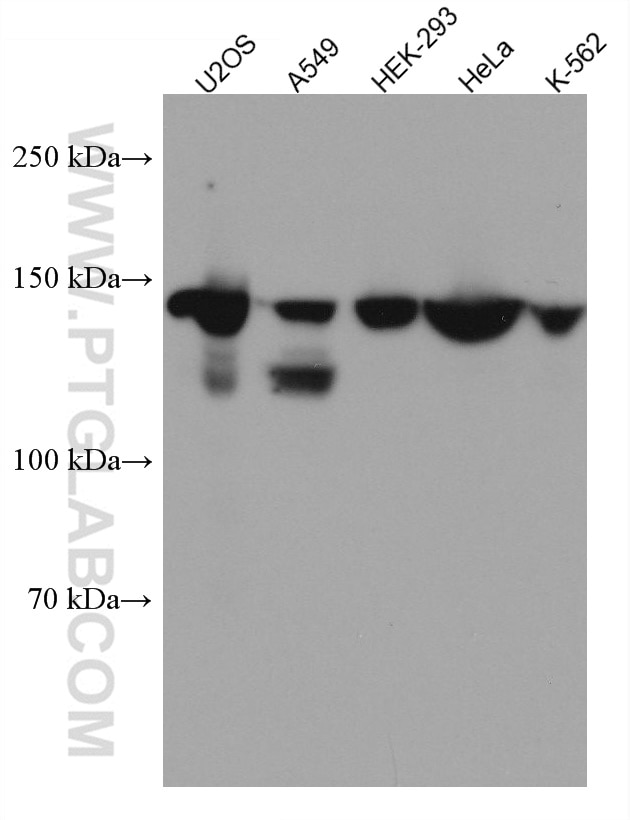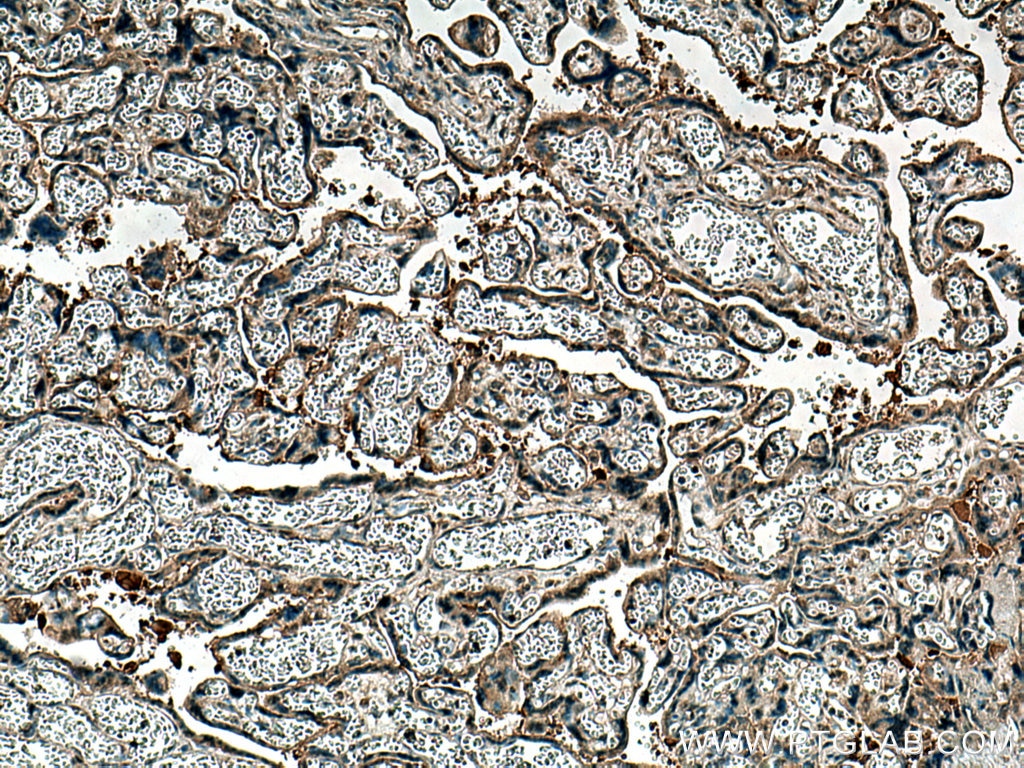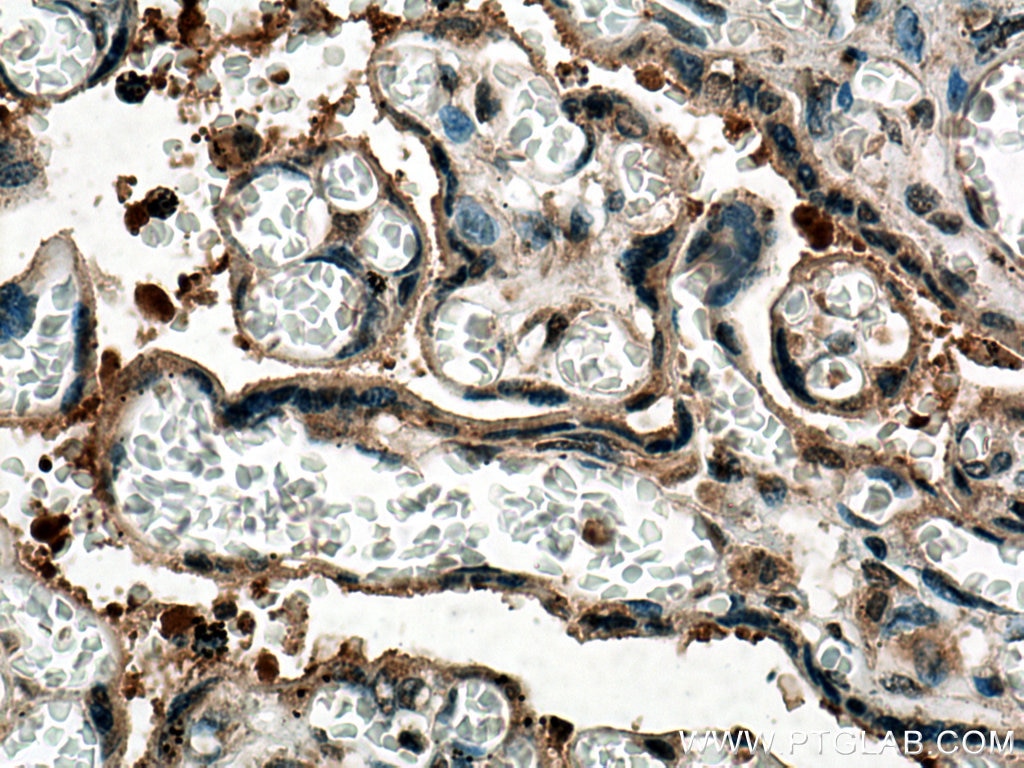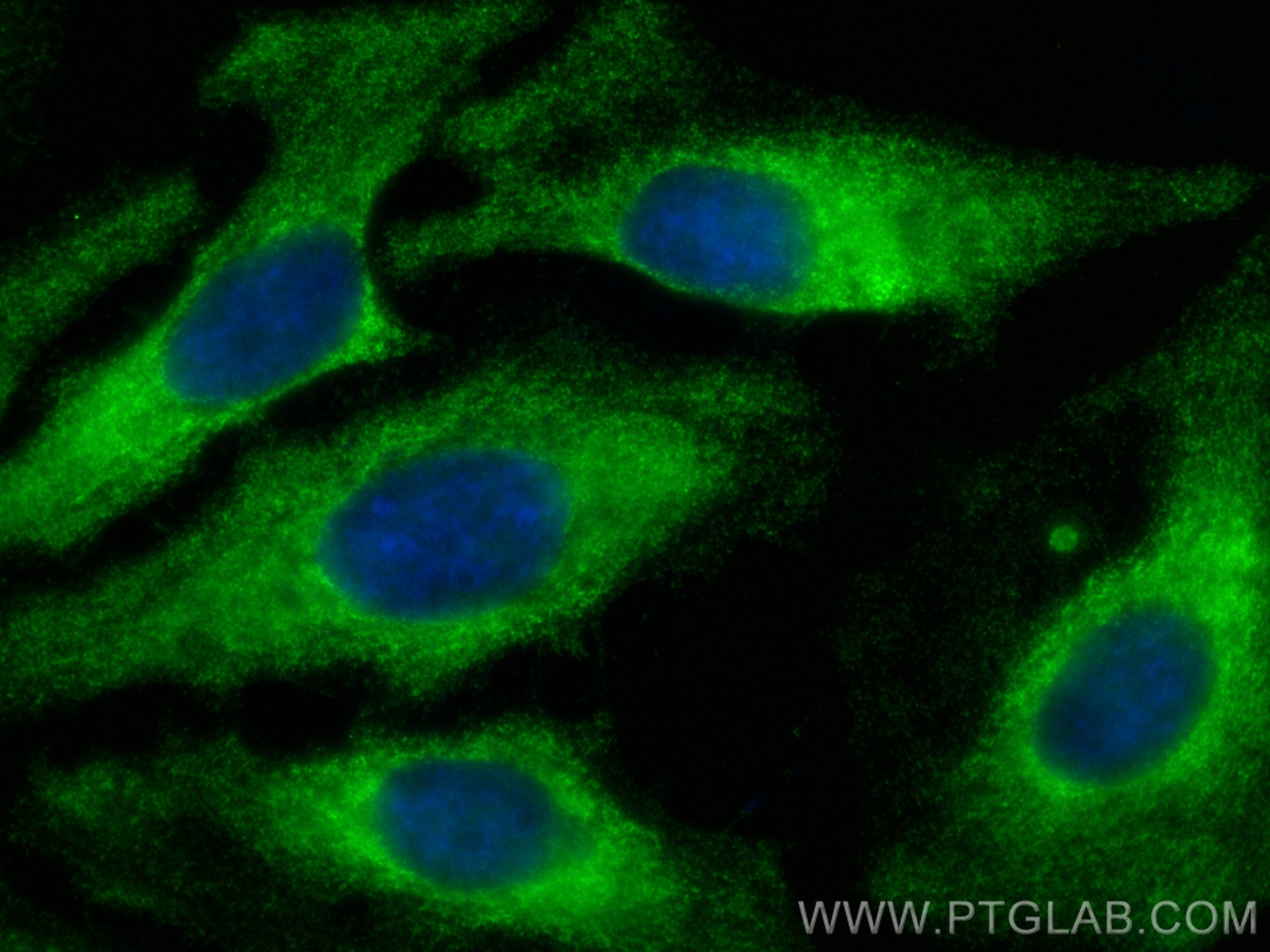Validation Data Gallery
Tested Applications
| Positive WB detected in | U2OS cells, A549 cells, HEK-293 cells, Hela cells, K-562 cells |
| Positive IHC detected in | human placenta tissue Note: suggested antigen retrieval with TE buffer pH 9.0; (*) Alternatively, antigen retrieval may be performed with citrate buffer pH 6.0 |
| Positive IF/ICC detected in | HeLa cells |
Recommended dilution
| Application | Dilution |
|---|---|
| Western Blot (WB) | WB : 1:1000-1:4000 |
| Immunohistochemistry (IHC) | IHC : 1:50-1:500 |
| Immunofluorescence (IF)/ICC | IF/ICC : 1:200-1:800 |
| It is recommended that this reagent should be titrated in each testing system to obtain optimal results. | |
| Sample-dependent, Check data in validation data gallery. | |
Published Applications
| WB | See 1 publications below |
| IF | See 1 publications below |
Product Information
67744-1-Ig targets PTPN14 in WB, IHC, IF/ICC, ELISA applications and shows reactivity with human samples.
| Tested Reactivity | human |
| Cited Reactivity | human |
| Host / Isotype | Mouse / IgG1 |
| Class | Monoclonal |
| Type | Antibody |
| Immunogen | PTPN14 fusion protein Ag12679 相同性解析による交差性が予測される生物種 |
| Full Name | protein tyrosine phosphatase, non-receptor type 14 |
| Calculated molecular weight | 1187 aa, 135 kDa |
| Observed molecular weight | 150 kDa |
| GenBank accession number | BC101754 |
| Gene Symbol | PTPN14 |
| Gene ID (NCBI) | 5784 |
| RRID | AB_2918513 |
| Conjugate | Unconjugated |
| Form | Liquid |
| Purification Method | Protein A purification |
| UNIPROT ID | Q15678 |
| Storage Buffer | PBS with 0.02% sodium azide and 50% glycerol , pH 7.3 |
| Storage Conditions | Store at -20°C. Stable for one year after shipment. Aliquoting is unnecessary for -20oC storage. |
Background Information
PTPN14 (tyrosine-protein phosphatase non-receptor type 14) is also named as PEZ and belongs to the protein-tyrosine phosphatase family and non-receptor class subfamily. It is a multi-domain protein expressed in breast, kidney, skeletal muscle, lung, placenta, and characterized by an N-terminal FERM domain and a C-terminal PTP domain with an intervening sequence containing an acidic region and a putative SH3 domain-binding sequence (PMID: 21701840). Defects in PTPN14 are a cause of choanal atresia and lymphedema (CHATLY).
Protocols
| Product Specific Protocols | |
|---|---|
| WB protocol for PTPN14 antibody 67744-1-Ig | Download protocol |
| IHC protocol for PTPN14 antibody 67744-1-Ig | Download protocol |
| IF protocol for PTPN14 antibody 67744-1-Ig | Download protocol |
| Standard Protocols | |
|---|---|
| Click here to view our Standard Protocols |
Publications
| Species | Application | Title |
|---|---|---|
Biomed Pharmacother XPO1 intensifies sorafenib resistance by stabilizing acetylation of NPM1 and enhancing epithelial-mesenchymal transition in hepatocellular carcinoma |



